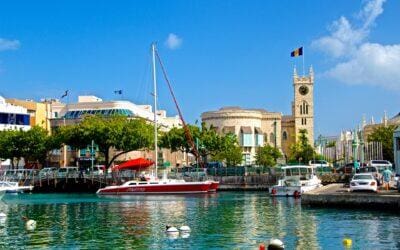World Tourism Organization (UNWTO) defines sustainable travel as “Tourism that takes full account of its current and future economic, social and environmental impacts, addressing the needs of visitors, the industry, the environment, and host communities.” The phrase “sustainable travel” involves the application of sustainable practices with the intention of limiting the adverse effects and boosting the beneficial ones of tourism.
Flying less frequently is indeed one of the simple strategies to minimize emissions when considering how to lower each of our own carbon footprints. But there are ways to make travel more environmentally friendly for individuals who want to explore the world, such as where you go, what you carry, where you stay, and how you pick to get there. Here are some tips for sustainable travel:
Let’s see some practical ways to be a sustainable traveler:
Eco-Friendly Accommodations & House-Sharing
Utilizing eco-friendly housing lessens the negative effects of the tourism industry on the environment. Eco-friendly accommodations put a strong emphasis on protecting the environment and having a positive environmental impact, from using renewable energy sources to using bio-architecture.
Here comes the role that Holiday Swap plays in sustainable travel. Because platforms like Holiday Swap provide housing that uses 66 percent less energy, water, and garbage than hotels do, they produce 66 percent less CO2. Staying at someone else’s house can actually have a good environmental impact in many respects because there is less cleaning, cooking, and use of tiny hotel luxuries. What does this entail for hotels, though? As more travelers engage in home swaps, there is less of a need for hotel investors to construct new hotels and additions, which allows us to protect more natural and historic resources.
With Holiday Swap, a week of lodging costs just $7, and it’s reasonable to assume that $7 does not buy much in terms of a hotel or maybe a bed in a hostel! Because lodging is so inexpensive, visitors have more money to spend on authentic experiences like eating at neighborhood eateries and utilizing local tour guides as well as shopping locally. As a result, a town can really begin to appreciate the benefits of someone staying at a home-sharing site as opposed to a hotel. Therefore, using home-sharing sites not only benefits the environment, but travelers also discover that they may significantly save their lodging costs!
Without question, home-sharing platforms, in particular, will continue to play a significant role in the development of sustainable travel & tourism. The advantages for the environment and the community alone demonstrate why it’s critical to take into account non-traditional lodging options rather than hotels. But this is not the only noteworthy advantage. You can travel more affordably, experience a place like a native, and make new friends in the process by staying in someone else’s house. Are you prepared to try sustainable travel with Holiday Swap and take responsibility for the environment?
Using natural resources as efficiently as possible
Making the best use of environmental resources protects biodiversity and the natural world. The primary issue is that environmental resources are being used more quickly than they can be replenished, which contributes to climate change and biodiversity loss. In this sense, an ecological footprint is a tool for evaluating the damage that overusing natural resources causes to the environment.
Using public transportation
Utilizing mass transportation eases traffic congestion and lowers air pollution. Taking public transportation reduces the number of automobiles on the road and the amount of carbon dioxide produced into the atmosphere. Similar to how fewer cars mean less congestion on the roadways.
Respecting local communities’ cultures
Cultural and artistic assets are preserved when local communities are respected for their culture. One of the most pleasant aspects of sustainable travel is interacting with locals, which also helps to preserve traditions that have been passed down through generations. Traditions shape the local community’s identity and foster a sense of community among its members; hence it is crucial to respect them.
Traveling Slow
Slowing down reduces the environmental effect and saves money. For instance, taking the train instead of another mode of transportation has a lower environmental impact and costs less money. However, this is not all. Slowing down also enables you to take in the surrounding landscape.
Saying No to Plastic
By rejecting single-use plastic, pollution is decreased. Due to the usage of fossil fuels in the manufacture of plastic, carbon dioxide is released into the atmosphere, causing climate change. Additionally, according to National Geographic, 8 million tonnes of plastic waste enter the oceans annually, endangering marine life.
Supporting Local Businesses
The local economy is strengthened when customers patronize and support local businesses. However, this is not all. Locally produced goods require less packaging, don’t require transportation, and provide more employment.
Eating Local
Consuming local food guarantees freshness and supports neighborhood businesses. Food that is grown nearby doesn’t need to be transported; therefore, it is always fresh and healthy. Consuming local goods also promotes the local economy and helps a community’s employment and income levels.






